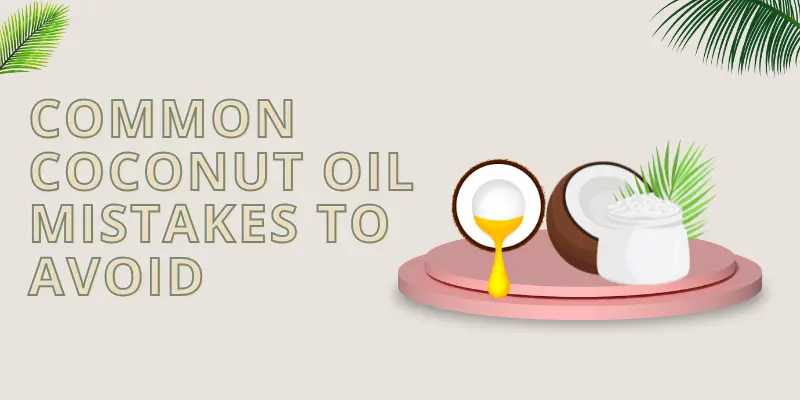How Often to Apply Coconut Oil to Your Scalp at Night for Gorgeous Hair
Published: 3 Apr 2025
Dry scalp? Frizz? Flakes? Coconut oil could be your overnight hair hero, but only if you use it correctly. Slather it on too often, and you’ll battle grease. Use it too little, and you’ll miss the magic. So, how often should you apply coconut oil to your scalp at night for dreamy results? Let’s cut through the confusion and find your perfect routine, no guesswork required!
Coconut Oil Application Frequency (By Hair Type)
Coconut oil works differently depending on the type of hair you have. For dry or curly hair, applying coconut oil 2–3 times a week helps lock in moisture and reduce breakage. Individuals with straight or fine hair types should use it just once a week to prevent weighing the hair down.

Using coconut oil the right way and at the right frequency can help keep your scalp and hair healthy. Here’s how often you should apply coconut oil based on your hair and scalp type:
1. For Dry Scalp or Hair
If your scalp feels dry, tight, or flaky, and your hair is brittle:
- How often? Apply coconut oil 3-4 times a week.
- Why? Coconut oil deeply hydrates and nourishes both the scalp and dry hair, helping reduce itching and dryness.
- Tip: This routine works best if your scalp often feels uncomfortable or flaky.
2. For Oily Scalp
If your scalp gets oily fast and your hair looks greasy:
- How often? Apply coconut oil only once a week.
- Why? Applying too often can cause extra oil buildup and weigh down your hair.
- Warning: Skip if your hair becomes greasy quickly during the day.
3. For Dandruff or Itchy Scalp
If you have dandruff or itchiness on your scalp:
- How often? Use coconut oil 2 to 3 times a week.
- Boost benefits: Mix in 1 to 2 drops of tea tree oil to fight fungus and soothe irritation.
4. For Normal Scalp
If your scalp feels balanced with no dryness or oiliness:
- How often? Apply coconut oil twice a week.
- Why? This keeps your scalp healthy without making it oily or dry.
How to Apply Coconut Oil at Night (Step-by-Step)
Start by warming a small amount of coconut oil until it melts. Apply it to your scalp and hair, focusing on dry or damaged ends for an effective dry scalp treatment. Gently massage your scalp for a few minutes to boost circulation.

Applying coconut oil at night is a great way to nourish your hair and scalp while you sleep. Follow these simple steps to get the best results:
1. Choose the Right Oil
Start by picking a good-quality coconut oil. Virgin, cold-pressed coconut oil is the best choice because it keeps all the natural nutrients that help your hair. Avoid refined coconut oil, as it loses many benefits during processing.
2. Warm It Up
Take a small amount of coconut oil and rub it between your palms. This warms the oil and melts it, making it easier to spread evenly on your scalp and hair.
3. Massage Gently
Use your fingertips to massage the oil gently into your scalp for about 5 minutes. This massage helps improve blood flow, which can support hair growth and keep your scalp healthy.
4. Cover Your Hair
After applying the oil, cover your hair with a shower cap or a soft towel. This stops the oil from staining your pillow and helps your scalp absorb the oil better overnight.
5. Wash Out Thoroughly
In the morning, wash your hair well using a gentle shampoo to remove any leftover oil. Washing properly prevents your hair from feeling greasy or heavy and keeps your scalp clean.
Common Coconut Oil Mistakes to Avoid
Using too much coconut oil can make hair greasy and hard to wash out. Don’t apply it to dirty hair; always start with clean strands.

Using coconut oil can do wonders for your hair, but only if you use it the right way. Here are some common mistakes to avoid to get the best results:
Using Too Much Oil
Many people think more oil means better results, but that’s not true. Using too much coconut oil can make your hair look greasy and heavy. Start with a small, pea-sized amount, especially if you have short or fine hair. You can always add a little more if needed, but less is better to keep your hair fresh and light.
Skipping Morning Washes
After applying coconut oil overnight, it’s important to wash your hair properly in the morning. Leaving the oil in without rinsing can clog your scalp’s pores and cause buildup. This might lead to scalp irritation or dandruff. Always shampoo well to remove the oil and keep your scalp clean and healthy.
Picking Refined Oil
Not all coconut oils are the same. Refined coconut oil is processed and loses many of its natural nutrients, making it less effective for hair care. For the best results, always choose virgin, cold-pressed coconut oil. This type keeps all the vitamins and antioxidants that nourish your scalp and hair deeply!
My Coconut Oil Journey
I’ll never forget my first coconut oil mistake. After struggling for years with a flaky scalp and wild frizz, I thought coconut oil would be my miracle fix. So, I slathered it on every night, dreaming of silky, smooth hair. But two weeks later, my roots looked greasy like they were dipped in bacon grease, while my ends stayed dry and straw-like. I looked in the mirror and thought, “Well, that didn’t work at all!”
The Breakthrough Moment
Then my hairstylist told me the secret:
“Coconut oil isn’t about using a lot – it’s about using it the right way.”
For My Dry, Frizzy Hair
I decided to start slowly and only used coconut oil three times a week—Monday, Wednesday, and Friday nights.
- First wins: By the third week, my itchy scalp calmed down, and my hair started feeling soft and smooth like satin.
- Secret weapon: I always warmed a small, pea-sized amount of oil between my palms before applying it.
My “Aha!” Lessons
- The Grease Trap: Using coconut oil every day made my hair oily and heavy. Cutting back to twice a week was the perfect balance.
- Seasonal Shifts: In winter, I treat my hair three times a week, but in summer, just once a week to avoid weighing it down.
- Upgrade Trick: Adding one drop of lavender oil made the routine feel like a relaxing spa ritual and helped me sleep better!
My Bedtime Routine Now:
- Warm virgin coconut oil in my hands
- Massage gently into scalp for 5 minutes (my favorite meditation time)
- Cover hair with a silk cap to protect pillows
- Wash hair in the morning with gentle, sulfate-free shampoo
The Result? After 6 Months:
✔️ No more flakes, even during winter!
✔️ Natural shine without any greasy feeling
✔️ Less breakage when brushing and styling
Remember: Every person’s hair is different. Start with these simple steps, listen to what your hair needs, and adjust as you go. Your hair will tell you what works best, just pay attention!
Conclusion
The secret lies in your hair type. For dry or frizzy hair treatment, 3-4 nights a week is perfect. Oily scalp? Stick to once weekly. Got dandruff? Try 2-3 nights with a few drops of tea tree oil. The key is consistency and balance.
As someone who struggled with greasy roots, I can honestly say that using the best coconut oil just once or twice a week made all the difference.
Start with the schedule that fits your scalp, give it 4 weeks, and watch your hair come to life. And if this helped, share the love, send it to a friend who’s lost in the coconut oil maze!
FAQs
Coconut oil can be safely left on the scalp overnight to allow deep penetration into the hair strands. However, it’s important to wash it off within 12 hours to prevent clogged pores or buildup on the scalp. Leaving it for too long can also make hair greasy and attract dust or dirt. For best results, massage gently into the scalp before bedtime and cover your hair with a shower cap to avoid staining pillowcases.
Coconut oil doesn’t directly make hair grow faster, but it supports healthier hair over time. By reducing breakage, preventing split ends, and strengthening strands, it allows hair to grow longer without damage. Regular use keeps hair moisturized and protected, which indirectly promotes better growth retention. Combining coconut oil treatments with a healthy diet and proper hair care routine enhances overall hair length and thickness.
Daily application of coconut oil is only recommended for extremely dry or damaged scalps. For most people, applying coconut oil 2–3 times per week is sufficient to see benefits without causing greasy buildup. Overuse can weigh hair down, attract dust, and potentially clog follicles. Pay attention to how your hair responds and adjust frequency accordingly. Lighter oils or diluted blends can be used if daily hydration is needed.
Yes, but only use unrefined, cold-pressed coconut oil for hair. Most regular kitchen oils are refined and lack the nutrients necessary for hair health. Virgin coconut oil retains essential fatty acids, antioxidants, and vitamins that moisturize and strengthen hair. Using high-quality oil ensures your hair receives the maximum benefits, from reducing breakage to adding shine.
These terms are mostly marketing language and don’t guarantee superior quality. To ensure your oil is effective for hair, stick to cold-pressed virgin coconut oil. This type retains natural nutrients without chemicals or high heat processing. Always check the label for purity and avoid products with added fragrances or preservatives, which may irritate the scalp.
Fractionated coconut oil is a lightweight version that stays liquid at room temperature. It’s ideal for fine hair or for mixing with essential oils, but it provides less intense moisture compared to virgin coconut oil. It’s useful if you want a non-greasy option or a lighter leave-in treatment. For deep hydration, virgin coconut oil is still the better choice.
For dandruff, use virgin coconut oil combined with 1–2 drops of tea tree oil. The antifungal properties of tea tree oil help reduce flakiness and soothe irritation. Refined coconut oils lack these nutrients and are less effective. Massage the mixture into your scalp, leave for 30–60 minutes, and then wash with a gentle shampoo. Regular weekly treatments help manage scalp dryness and flaking.
Fractionated coconut oil remains liquid at cooler temperatures, while virgin coconut oil solidifies below about 76°F (24°C). Both forms are legitimate and effective, but their consistency differs due to processing. Choose based on your hair type and how you plan to use it. Solid virgin oil can be scooped and warmed before application, while fractionated oil can be applied directly as a lightweight treatment.
Yes, coconut oil can protect and moisturize color-treated hair. However, overuse may fade semi-permanent dyes if applied too often. Limit treatments to 1–2 times per week and always wash with a color-safe shampoo afterward. The oil helps prevent breakage and adds shine, which keeps dyed hair looking healthy. Avoid heavy application on roots if your scalp tends to get oily quickly.
Only if it’s unrefined and cold-pressed. Most cooking coconut oils are refined and stripped of beneficial nutrients, making them less effective for hair care. Using high-quality virgin coconut oil ensures your hair receives fatty acids, vitamins, and antioxidants for strength, moisture, and shine. Always read the label and avoid oils with added flavors, chemicals, or preservatives for the best results.

- Be Respectful
- Stay Relevant
- Stay Positive
- True Feedback
- Encourage Discussion
- Avoid Spamming
- No Fake News
- Don't Copy-Paste
- No Personal Attacks

- Be Respectful
- Stay Relevant
- Stay Positive
- True Feedback
- Encourage Discussion
- Avoid Spamming
- No Fake News
- Don't Copy-Paste
- No Personal Attacks





